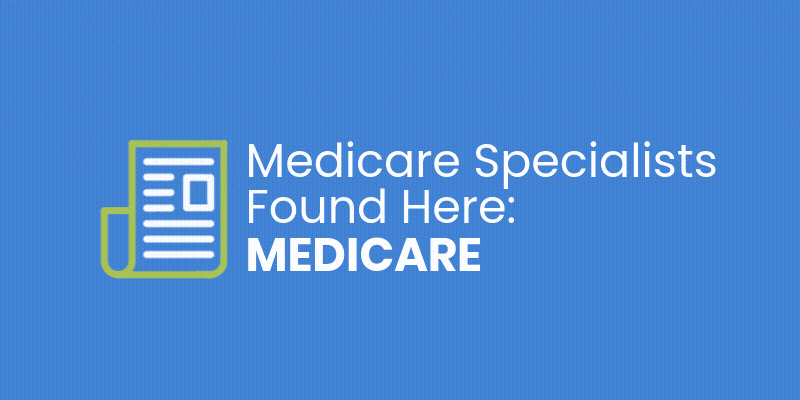
Once you are close to turning 65, you will have to start dealing with Medicare. Medicare is the national health insurance program for senior citizens. This program is administered by the Center for Medicare and Medicaid Services of the federal government.
Medicare has four main parts. Each part covers a different aspect of healthcare. Parts A and B are mandatory, and together they are known as “Original Medicare.”
When it comes to signing up for Medicare, a good rule of thumb is reach out to your agent or financial professional a minimum of three months before your 65th birthday. They can help you with getting the ball rolling to get things started. Contacting your agent six months before your sixty-fifth birthday for Medicare guidance can give you even more time. To that end, it’s helpful to understand the basics of the Medicare program and how they can affect your healthcare needs.
If you are trying to decide which Medicare options make sense for you, here is some important information to help you get started.
Medicare Part A
Part A of Medicare deals with hospital insurance. It generally covers various types of inpatient hospital expenses, such as emergency room treatment, surgeries, and room and board in a hospital room. It also covers short-term skilled nursing care, home healthcare, or in-home hospice care as long as it was ordered by a doctor and follows a hospital stay.
Home healthcare includes treatments such as physical, occupational, and speech therapies. Most people usually don’t pay a monthly premium for Part A, but there is a deductible that is indexed every year for inflation. A co-pay will be assessed for every day over 60 days that you are in the hospital.
The enrollment period for Medicare Parts and B starts three months before the month in which you turn 65. Then it lasts for another three months after the month in which you turned 65.
Medicare Part B
Part B of Medicare generally covers outpatient medical services. These can include: Medically necessary doctor’s services,- Outpatient care,
- Home health services,
- Durable medical equipment,
- Mental health services, and
- Other services.
Medicare Part B also covers many preventative services.
Generally, you don’t have to enroll in Part B if you are still covered under your or your spouse’s employer-sponsored health insurance plan. However, there are certain conditions regarding this, including the size of your employer. Your agent can go over those in more detail. If you aren’t covered in this way, then there will likely be a penalty for late enrollment.
There is a monthly premium assessed for Part B coverage. You also have an annual deductible that increases each year. If you are receiving Social Security, these premiums will be deducted from your monthly Social Security payment.
Medicare Part C
Part C of Medicare consists of health insurance plans that are offered by private health insurance companies. The insurance companies are approved by the Centers for Medicare and Medicaid Services.
This group of plans acts as a substitute for Medicare Parts A and B. These plans are collectively known as Medicare Advantage plans. In some cases, they also offer other types of coverage that Original Medicare doesn’t, such as for dental, vision, and hearing.
How much that you might pay for a Medicare Advantage plan can vary. It depends on the nature and scope of services that are covered by the plan, as well as by your geographic region. Many Medicare Advantage plans have a zero-dollar premium.
Some Advantage plans also include prescription drugs in their scope of coverage. Other services that these plans may cover include wellness programs, adult daycare, and transportation to a doctor’s office.
Medicare Part D

There are several different Part D plans available. Each one has a list of the specific drugs that it covers. This means that you will need to look for a plan that covers the drugs that have been prescribed to you. For example, some plans cover drugs for cancer and diabetes while others don’t.
You might need to sign up for Medicare Part D at the same that you sign up for Original Medicare. Otherwise, you may have to pay a penalty later on when you do enroll.
You also might not need separate Part D coverage if you subscribe to a Medicare Advantage plan that covers this expense. Ask your agent or financial professional if this might apply to your situation.
Medigap Policies
Medigap policies are also known as Medicare supplement plans. They are designed to cover most or all of the costs that the three basic parts of Medicare don’t cover. This includes the 20% co-pay and the various deductibles.
That being said, you can’t hold a Medigap plan if you are enrolled in a Medicare Advantage plan. Of course, these plans come at an additional cost. However, those who can afford to buy one of these policies can be well-served by doing so.
As with Medicare Advantage plans, Medigap plans are offered by private health insurers. There are separate plans available.
Each plan is standardized, which means that each separate respective plan that is offered by one health insurance carrier will be identical to the same plan offered by another carrier.
Medicare can cover many, but not all, of the costs of healthcare that you will most likely incur during retirement. Medigap plans can help plug in the gaps. Make sure to shop around to see which plans are best for you.
Making a Decision for Your Healthcare Needs
Determining which coverage is right for you may be one of the most important retirement decisions that you make. It can be a big influence in how much you might pay for healthcare in retirement, among other things. If you need help with navigating your Medicare options, personalized guidance from an independent agent or financial professional can help.
By visiting our “Find a Medicare Specialist” section, you can connect with an independent agent or financial professional about your situation. Please feel free to request a personal strategy session to discuss your needs and situation. Should you have any questions or need a referral, please call us at 877.476.9723.
Educational Purposes Only
The Medicare information provided on this website is for educational purposes only and does not constitute marketing, solicitation, or endorsement of any specific Medicare plan, insurance product, or service. This content is intended solely to help individuals better understand Medicare, including general coverage options, eligibility requirements, and enrollment processes.
This website is not designed to influence any individual’s decision regarding their Medicare plan selection. It does not recommend or promote any particular Medicare Advantage, Medicare Part D, or Medigap plan. For comprehensive, personalized information about Medicare options, beneficiaries are encouraged to consult the official Medicare website (www.medicare.gov) or contact Medicare directly at 1-800-MEDICARE.
This educational content is not affiliated with, approved by, or endorsed by the Centers for Medicare & Medicaid Services (CMS) or any other government agency. The information provided is subject to change, and individuals should verify all information directly with CMS or a licensed Medicare advisor.








